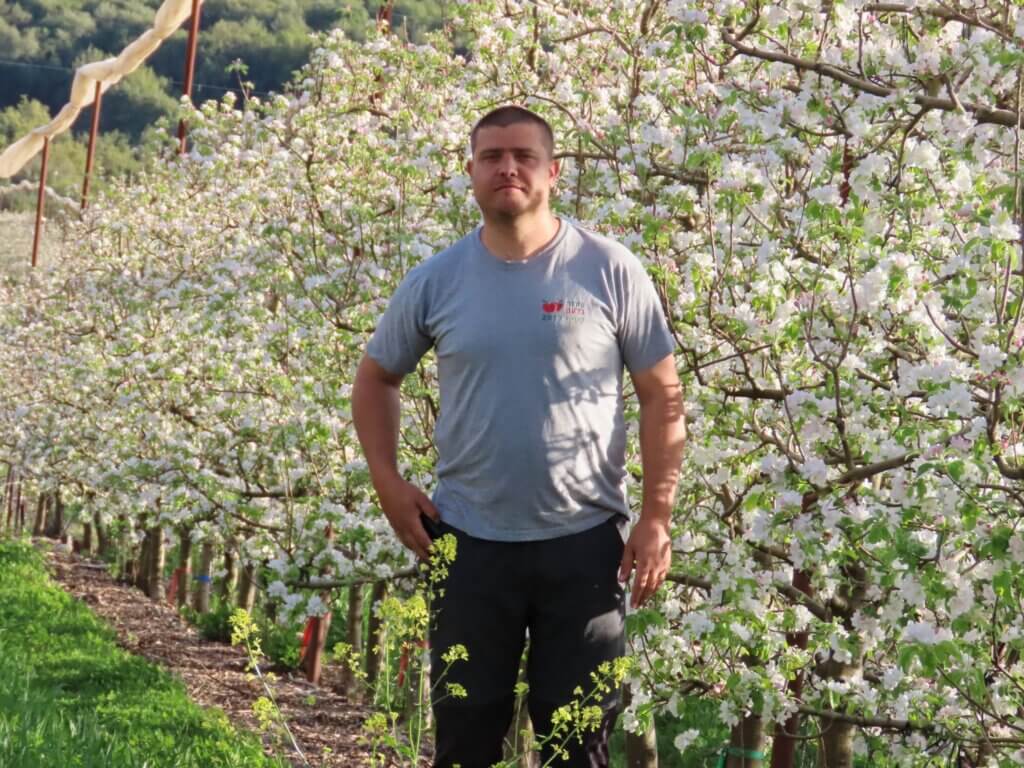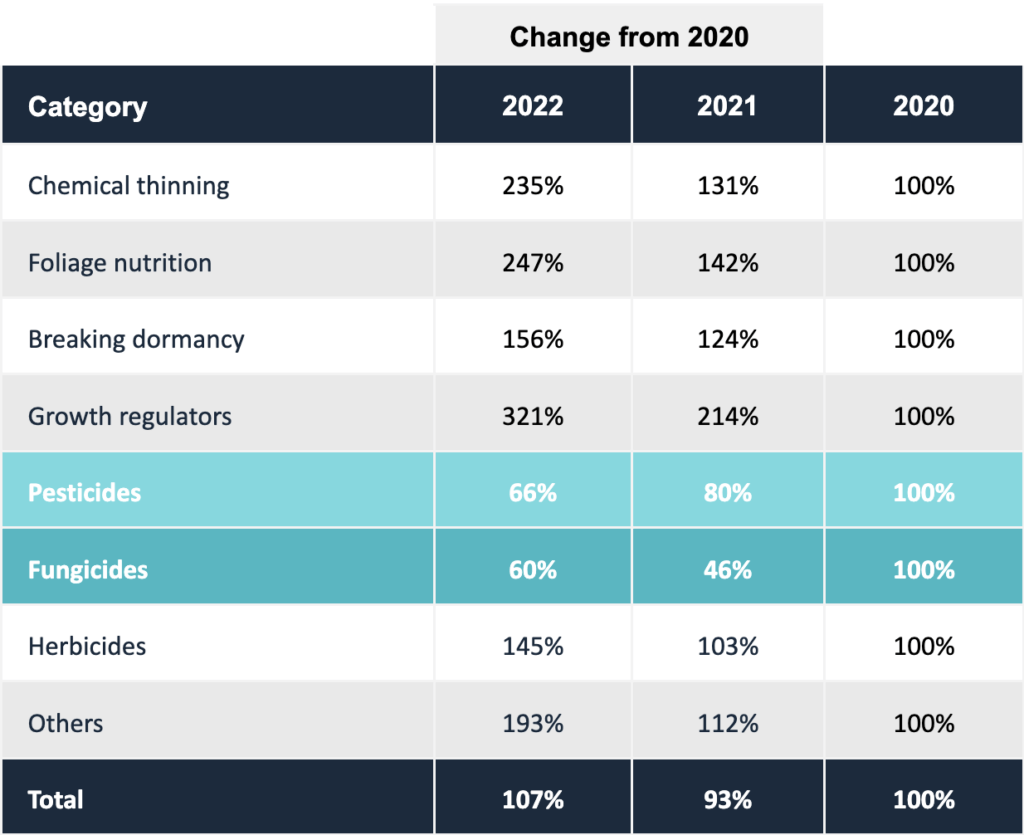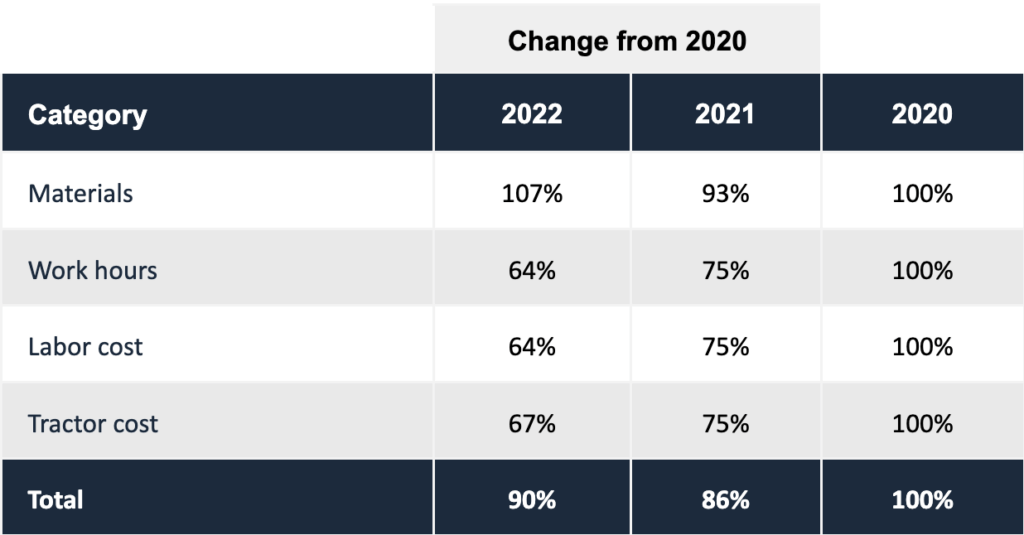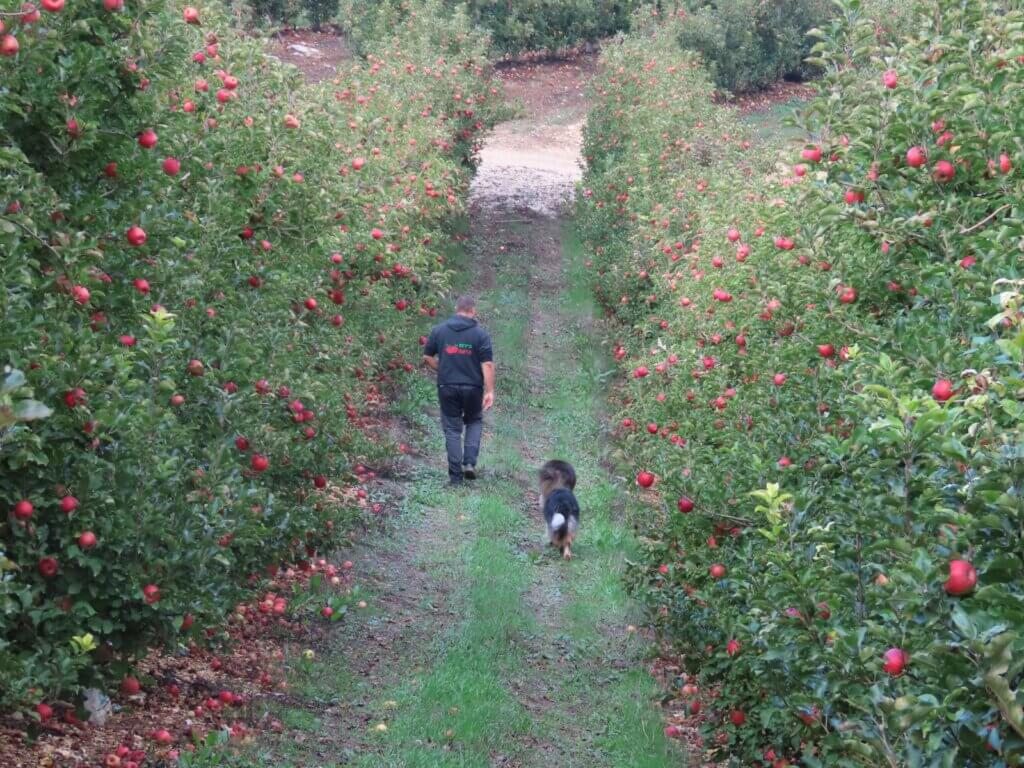Kibbutz Bar’am operates one of the largest deciduous orchards in Israel, growing over 350 acres of apples, kiwis, pears, peaches, nectarines, plums, and apricots. Apples are the primary crop, comprising over ⅔ of the orchard (250 acres). And because apples require extra attention around pest management, their team spends much of their time planning, executing, and analyzing spray operations.
Poul Stahl is the Ranch Manager at Kibbutz Bar’am, overseeing 10 full-time staff, 40-50 crew members during the winter, and 150-170 crew members during harvest season. In his role, Poul is responsible for managing all of the orchard operations, including agronomy, pest management, fertilization, irrigation, technology, and financials. After discovering Fieldin over 7 years ago, Poul and his team have become a fully data-driven operation, leveraging the solution to implement closed-loop planning, execution, and reporting cycles. With this approach, they’ve been able to achieve significant cost savings while also elevating the quality of their spray operations to continuously ensure the health of their orchards.

“We can monitor all of the sections and blocks that we spray and know that everything was done according to plan and that we didn’t miss anything.”
Poul Stahl
Ranch Manager, Kibbutz Bar’am
Closed loop planning-execution-reporting eliminates gaps in spraying operations
Poul describes a situation three years ago when they had an issue with apple moths affecting 25 acres of their orchard, requiring that they complete extra sanitation before harvest. At the end of the season, they looked back at the data from their spray operations and discovered that they had, in fact, given the instructions to spray at the right time, but the spray was carried out 10 days late. “The delay between the instructions and the spray opened a gap which allowed the apple moth to develop. On top of that, we had some very hot days during that window which accelerated the development,” says Poul. “This hasn’t happened with any treatment since because now we monitor twice a week to see which spray recommendations have been completed and which haven’t.”
Poul and his team have developed closed-loop cycles of planning, execution, and reporting to ensure that gaps and errors like the previously mentioned situation don’t occur. First, they input their spray recommendations into Fieldin as work orders so the instructions are well-documented and visible across the team. From these instructions, the operators know which area within the orchard to treat, the speed they should be going, and the volume of chemicals to be applied. Every day, the spray supervisor reviews the previous day’s shift to ensure that the application was done according to the instructions. They then use aggregated data across all spray applications to plan and continuously optimize their resources – labor, machines, chemicals.
Kibbutz Bar’am reduces pesticide costs by 34% and fungicide costs by 40%
In 2020, Poul and his team set a goal to reduce their pesticide and fungicide chemical costs by 20% year-over-year. To achieve this, they knew that they needed to improve their accuracy, as well as their efficiency. They began by pulling together an annual cost analysis using their Fieldin data alongside other parameters, including:
- Date of spray
- Material
- Supplier
- Price
- Reason for spray
- Labor cost (working hours)
- Machine cost (engine hours)
Summarizing the data in this way helped them connect the dots between their in-field operational activities and their bottom line. For example, the analysis surfaced that in one of their spray applications for fruit flies, they were actually applying 10x more materials than the recommendation called for. They had been using tractors for this particular application, which turned out to be too much. After switching to ATVs with a smaller, more targeted spraying system, they were able to right size the amount of materials being applied, which in turn cut their costs substantially. A side benefit to switching to ATVs was that it enabled them to drive faster and cover more acres in their shifts. This method proved to be so effective that three other orchards in the area followed suit.
By making incremental efficiency improvements, Kibbutz Bar’am has reduced their pesticide costs by 34% and fungicide costs by 40% since 2020. This achievement is especially remarkable given that the price of materials increased 5% in the same time period. (Note: In this same time period, they also made the decision to increase their usage of growth regulators and foliage nutrition, impacting the total chemical costs.)


Across the board, deep visibility into their operations has enabled them to be much more efficient. They’ve seen similarly impactful cost reductions across labor, fuel, and maintenance costs as well.
“I can explain every number here because I have the data to back it up,” says Poul.
Data validates budget approval for new refill station on orchard
A couple years ago, Poul and his team used Fieldin to summarize and compare their spray operations between orchards closer to fill stations and those farther away. Through this evaluation, they discovered that 20% of the shift time in the more distant orchards was spent driving to and from the blocks to refill tanks. Additionally, they saw that oftentimes 2-3 operators would be waiting at the fill station.
In Israel, water rights are tightly regulated, and it’s very expensive to add new fill stations to existing infrastructure. When Poul first approached upper management to get a new fill station added, he received some pushback. However, the summarized data at the end of the season proved that the excess drive time was costing them much more than purchasing a new connection to the water system. With the data in hand, the new fill station was approved. At the same time, they were able to split the station so that two operators are able to fill simultaneously at the same location, reducing waiting times and enabling them to cover more acres in a shift.
Looking ahead
As Poul reflects back on how far they’ve come over the past 7 years to become a truly data-driven operation, he’s excited about what’s next. They’re actively planning how they can repeat the successes that they’ve achieved with Fieldin’s SmartSpray solution across all of their other orchard operations with the complete SmartFarm solution.
“We want all of the data for all of our work captured,” says Poul. “If we saw this level of improvement in our spraying operations, then there’s no reason we won’t succeed in other areas.”







